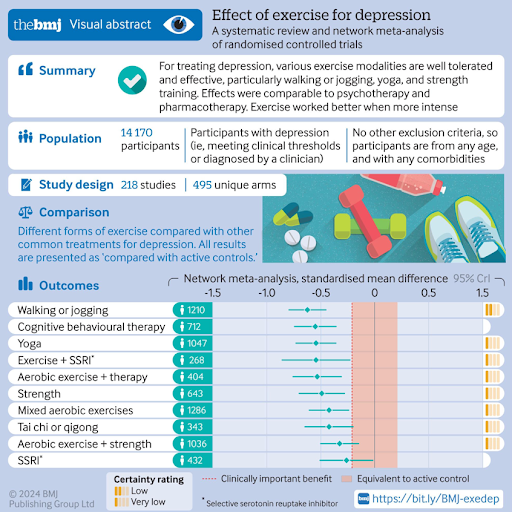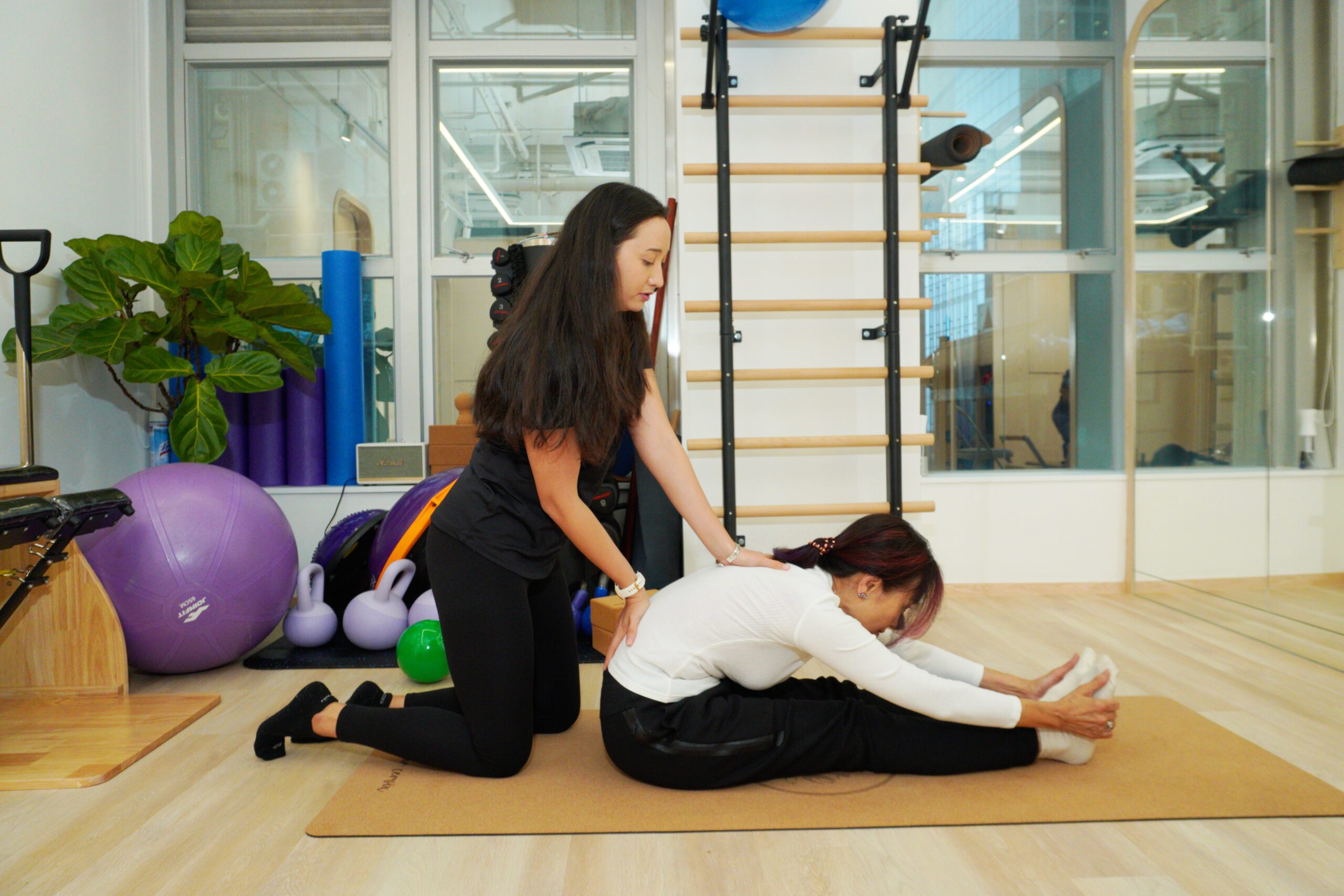Depression is one of the most prevalent mental disorders, affecting people of all ages
and backgrounds. Common symptoms include loss of interest in activities, persistent
feelings of sadness, and a general low mood. Depression can affect different aspects of
life such as interpersonal relationships, overrating or loss of appetite, energy levels, and
sleep patterns. So, how should we tackle this issue, and what is best to treat
depression?
According to the latest research, exercise appears to have the greatest impact on
treating depression. Specifically, activities like walking/jogging, yoga, and strength
training have shown significant effects and these interventions were found to be
comparable to counseling and medication-based approaches. Additional high-intensity
training has shown even better results than traditional methods.
This systematic review and meta-analysis included 218 studies with a total of 14,170
participants diagnosed with depression by a clinician. The studies compared different
forms of exercise with traditional treatments for depression. The results indicate the
most effective way to treat depression is a combination of exercises and selective
serotonin reuptake inhibitor, which is a common antidepressant. Following that,
walking/jogging, strength training, yoga, and cognitive behavioral therapy all showed
positive effects that were equal to or greater than those of psychotherapy and
medication alone. Hong Kong Sports Clinic provides the all information about like yoga exercise.

Noetel, M., Sanders, T., Gallardo‐Gómez, D., Taylor, P. L., Del Pozo Cruz, B., Van Den
Hoek, D., Smith, J., Mahoney, J., Spathis, J., Moresi, M., Pagano, R., Pagano, L.,
Vasconcellos, R., Arnott, H., Varley, B. J., Parker, P. D., Biddle, S. J. H., & Lonsdale, C.
(2024). Effect of exercise for depression: systematic review and network meta-analysis
of randomised controlled trials. The BMJ, e075847. https://doi.org/10.1136/bmj-2023-
075847

